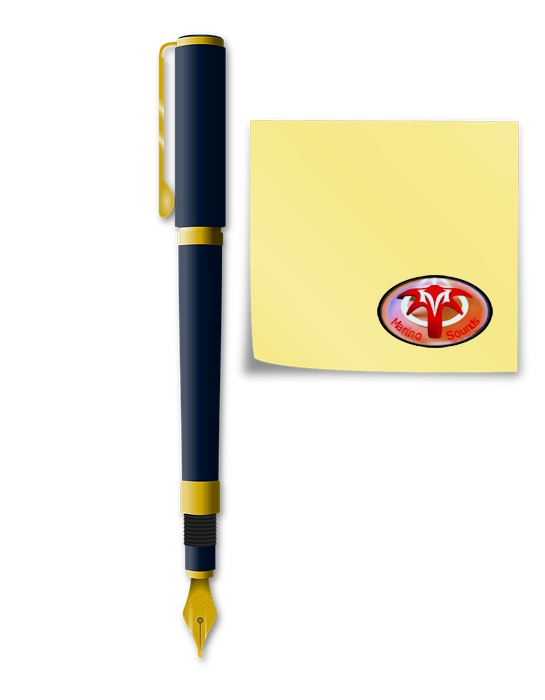by Manuel Marino | Guitar, Music

Photo by hectorir
Every so often, we decide to explore a new aspect of playing the guitar Strumming Practicing The Guitar - Practicing the guitar takes time and dedication. Learning to play the instrument requires consistent practice, but it doesn't guarantee that you'll become a rock star. Nonetheless, with regular practice and skill development, you can still achieve proficiency. There are two methods to start strumming a guitar: using your fingers or using a pick. Find a… that many people are either afraid of or simply have no idea about. Today, we’re going to tackle one of the more intimidating topics in guitar playing… Transposition.
Join us as we teach you the most simple and convenient methods to transpose your music.
Getting That Riff in Your Favorite Key!
How many times have you come up with a riff that you absolutely love, or discovered a song that you enjoy playing and wanted to incorporate it into a new, original piece? Chances are, we’ve all wanted to give it a try at least once or twice but always encountered one roadblock… Keys.
As mentioned in our previous post, the likelihood of two riffs being in the same key is low if … ...Read the rest.
“Lead Guitar Transposition Tips and Techniques”
by Manuel Marino | Guitar, Music

Photo by Usonian
- Draw fretboard diagrams and label the note names on the strings. This will enhance your understanding of the instrument and strengthen your ability to quickly identify any note (like when another musician tells you it’s an A chord). Start with just one string, such as the low E string, and label each note: E, F, F#, G, G#, etc. Repeat this exercise for each string, and soon you’ll have a much better grasp of the guitar’s layout.
- Draw more fretboard diagrams and fill in scale patterns. Remember that old joke about the school teacher making you write something repeatedly (like “I won’t chew gum in class”) on the chalkboard? Well, that repetitive practice might not have stopped you from chewing gum, but it can certainly help you memorize scale patterns.
Draw fretboard diagrams and place dots on the diagram in the shape of the five pentatonic patterns and seven diatonic patterns. Repeat this exercise until you have drilled these patterns into your mind. Even without your guitar in hand, this exercise will improve your ability to memorize the 12 essential scale patterns you need to master for playing lead guitar at a professional level.
- Give your fingers
… ...Read the rest.
“Learn How To Play Guitar By Not Having A Guitar”
by Manuel Marino | Guitar, Music

Photo by Affendaddy
Learn how to manipulate and shape your sound in a way that sets you apart from the rest of the crowd. We will provide some great tips on how you can make some simple adjustments that will give you a very unique style.
First and foremost, be yourself. Who are you as a guitarist?
We’ve all had moments where we wished we had the skill and sound of another guitarist. For some of us, this comparison happens daily and can either motivate us to work harder or leave us feeling discouraged. Unfortunately, the reality is that 95% of us will never sound exactly like our heroes. Why? Simply because we don’t have the same time, resources, or natural abilities as they do. This may sound harsh, but it’s actually a good thing when put into the context of our own playing. Anyone can pick up a tab book and play a song, but it takes a true guitarist to make it their own.
If you take the time to study some of your guitar heroes today, you’ll notice that they developed their own unique style by integrating techniques from other guitarists and blending them together. Many of … ...Read the rest.
“Guitarists: Find Your Own Identity and Guitar Playing Style”
by Manuel Marino | Movies, Writings

Photo by aplumb
The renowned writer/director Billy Wilder offered this piece of advice on screenwriting and filmmaking: “Grab ’em by the throat and never let go.”
This is what your first act, specifically, your initial 10 pages, should accomplish. The first act serves several purposes. It introduces your main characters, the setting, the time period, the theme, genre, and tone. This is the act where we meet both the protagonist and the antagonist.
In some films, we might not encounter the antagonist directly, but we are at least introduced to them, with hints of an ultimate revelation, as is often the case in mysteries. Even if we don’t see them yet, we are made acutely aware of their presence and the negative, often devastating, impact they will have on other characters in the story.
The first act also establishes the premise of the story: a saloon owner is surprised to see the woman he loves walk back into his life during World War II (Casablanca); a giant shark threatens a beach resort town at the beginning of the summer tourist season (Jaws); a young fighter pilot must rescue a kidnapped princess and destroy an evil empire (Star Wars).
Your first … ...Read the rest.
“Screenwriting for Authors – What Your First Act Must Do”
by Manuel Marino | Guitar, Music

Photo by momentcaptured1
Believe it or not, the sound of your guitar is just as good as the wood used to build it. Each type of wood has a unique sound that is individual to every acoustic guitar How to Buy a Guitar - The guitar is known for its dynamic and unique sound, making it a popular instrument in various genres of music. Whether you're a beginner or someone with a growing passion for guitar playing, here are some top tips for buying a guitar: Seek out advice. Start by seeking guidance from someone you know who has… . Like a fingerprint, it cannot be recreated even if another piece of wood is taken from the same source.
This is due to the distinct characteristics of the wood. There may be knots in the wood or a slightly different grain pattern. There could also be other subtle variations in the finish, all of which affect how the wood resonates. Resonate is a fancy word for vibration, which is what the wood does when you attach strings to it.
How freely the wood resonates will affect your volume (how loud you are) and your tone as a result. This explains … ...Read the rest.
“The Tone Woods of Acoustic Guitar”


 Manuel is a passionate, driven, and techsavvy AV technician,
Manuel is a passionate, driven, and techsavvy AV technician, 





Recent Comments